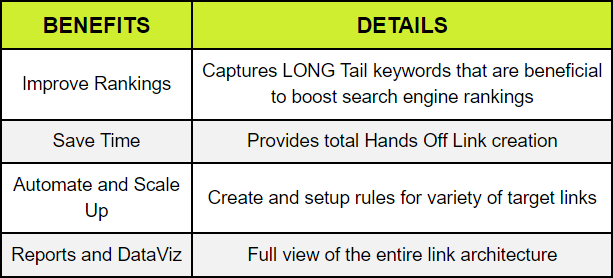Explore keyword cannibalization examples to avoid SEO pitfalls. Learn how to identify and resolve this common issue effectively.
Real-World Examples of Keyword Cannibalization
In the world of Search Engine Optimization (SEO), keyword cannibalization is a term that often causes confusion and concern among website owners and content creators. It refers to the situation where multiple pages on a website target the same or similar keywords, leading to competition between your pages. This article will explain what keyword cannibalization is, provide examples, and offer solutions to fix it.
What is Keyword Cannibalization?
Keyword cannibalization occurs when you have two or more pages on your site that are competing for the same keywords in search engine results pages (SERPs). This can confuse search engines and split the authority of your pages, potentially harming your site’s overall SEO performance.
Examples of Keyword Cannibalization
Let’s look at some hypothetical examples to illustrate keyword cannibalization:
- E-commerce Store: An online shoe store has separate pages for ‘men’s running shoes’, ‘women’s running shoes’, and ‘best running shoes’. All these pages target the keyword ‘running shoes’, competing against each other.
- Blog: A cooking blog has multiple articles about ‘chocolate chip cookie recipes’, each targeting the same keyword phrase, thus competing for the same traffic.
- Service Provider: A digital marketing agency has several service pages that all target ‘SEO services’, making it hard for search engines to determine which page should rank for the query.
Why is Keyword Cannibalization a Problem?
When multiple pages target the same keyword, they cannibalize each other’s chances to rank higher. Instead of having one strong page, you end up with several weaker ones. This can lead to:
- Lower Rankings: Search engines may not know which page to prioritize, causing all competing pages to rank lower.
- Diluted Page Authority: The ‘link equity’ is spread across multiple pages rather than concentrated on one authoritative page.
- Wasted Crawl Budget: Search engines spend time crawling multiple pages with similar content instead of discovering new, valuable content.
- Poor User Experience: Users may be confused about which page to choose, leading to a poor experience and potentially higher bounce rates.
How to Identify Keyword Cannibalization
To find out if your website suffers from keyword cannibalization, you can:
- Use SEO Tools: Tools like Ahrefs, SEMrush, or Moz can help you identify pages that rank for the same keywords.
- Manual Search: Perform a search on Google using the `site: ` operator followed by your domain and the keyword you suspect is causing cannibalization.
Solutions to Keyword Cannibalization
Once you’ve identified keyword cannibalization, here are some ways to resolve it:
Consolidate Content: Merge similar pages into one comprehensive page that can rank better.
Re-optimize Pages: Adjust the focus of each page to target different variations of the keyword or different aspects of the topic.
Use Canonical Tags: If merging pages isn’t an option, use canonical tags to tell search engines which page is the most important.
Improve Internal Linking: Use internal links to guide search engines and users to the most relevant page.
Conclusion
Keyword cannibalization can be detrimental to your website’s SEO efforts. By understanding what it is, identifying if your site is affected, and taking steps to resolve it, you can improve your site’s search engine rankings and user experience. Remember, the goal is to have a well-structured website where each page targets a unique set of keywords, thereby maximizing your visibility in search results.
FAQs
Q. What is the cannibalization rate?
Cannibalization Rate measures the impact of new products on sales revenue for existing products. As your business releases new products, attention and demand for existing products can decrease. Cannibalization in business can pose challenges to sales and marketing teams focused on an existing product line.
Q. What is keyword spamming?
Keyword spamming, which is sometimes referred to as keyword stuffing, is the method of overloading a piece of content with keywords and phrases in an attempt to get the content to rank higher on search engine results pages.
Q. What does keyword overlap in SEO?
Keyword overlap refers to the situation when two or more keywords in an ad group are very similar or share the same meaning. This can cause competition between keywords and result in higher costs per click (CPC) or lower ad relevance, as Google or other search engines might show multiple ads for the same search query.

